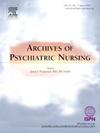在欧洲定居的地中海弱势移民的心理社会健康需求:促成因素的系统审查
IF 2.2
4区 医学
Q1 NURSING
引用次数: 0
摘要
近年来,通过地中海进入欧洲的非正常移民数量显著增加,仅在2023年就有约353300名移民进入欧洲。地中海移民往往是为了逃离冲突、迫害或极端贫困,他们在整个移民过程中面临着多方面的脆弱性,包括移民前的创伤、危险的过境条件以及移民后的挑战,如社会排斥、恶劣的生活条件和获得医疗保健的机会有限。这些因素共同损害了他们的社会心理健康(定义为心理、社会、文化和环境决定因素之间的动态相互作用),并增加了他们的脆弱性。尽管对移民的心理健康状况、社会孤立和文化障碍进行了广泛的研究,但证据仍然不完整。目的综合研究影响非正常穿越地中海航线后在欧洲国家定居的地中海弱势移民心理健康的社会、心理、文化和环境因素。遵循PRISMA指南进行了DesignA系统评价,重点关注2004年至2023年间发表的研究。在PubMed、CINAHL、Scopus、APA PsycArticles、APA PsycInfo和psychological and Behavioral Sciences Collection等数据库中进行搜索。采用收敛定性综合方法,将定性、定量和混合方法研究的结果整合到定性主题中。采用乔安娜布里格斯研究所(JBI)工具评估方法学质量。17篇文章在选择过程中被纳入。审查确定了影响地中海弱势移民心理社会健康的五个关键主题:社会人口、生理、社会、心理、文化和环境因素。社会人口学因素包括年龄、性别、教育程度和婚姻状况。物理因素包括先前存在的身体健康状况、移徙之旅对身体健康的影响以及长期健康轨迹。社会因素包括家庭动态、社会孤立和经济不稳定。心理因素包括心理健康挑战和应对机制。文化因素包括文化适应、语言障碍、歧视和精神。环境因素包括生活条件、获得医疗保健的机会和迁移的持续时间。保护因素也被发现,包括强大的家庭和社区网络,宗教参与,以及在陌生环境中的连续性感。讨论和结论研究结果强调了地中海VM中心理社会健康决定因素的复杂性,强调需要采取综合方法来解决这些交叉挑战。这项审查提供了对弱势移民心理社会健康的全面了解,并强调了有针对性干预的领域。包括护士在内的医疗服务提供者应优先考虑具有文化能力的护理。政策制定者必须解决系统性障碍,包括住房、法律的不确定性和医疗服务的可及性。未来的研究应探索长期的健康轨迹,并评估量身定制的干预措施的有效性。医疗保健提供者、政策制定者和社区组织之间的合作行动对于改善这一弱势群体的结果至关重要。本文章由计算机程序翻译,如有差异,请以英文原文为准。
Psychosocial health needs of mediterranean vulnerable migrants settling in Europe: A systematic review of contributing factors
Background
Irregular migration via the Mediterranean Sea has risen significantly in recent years, with approximately 353,300 migrants entering Europe in, 2023 alone. Mediterranean migrants, often fleeing conflict, persecution, or extreme poverty, face multidimensional vulnerabilities throughout the migration journey, including pre-migration trauma, perilous transit conditions, and post-migration challenges like social exclusion, poor living conditions, and limited access to healthcare. These factors collectively impair their psychosocial health, defined as the dynamic interplay between psychological, social, cultural, and environmental determinants, and increase their level of vulnerability. Despite extensive studies exploring mental health conditions, social isolation, and cultural barriers among migrants, the evidence remains fragmented.
Objective
To synthesize evidence on the social, psychological, cultural, and environmental factors affecting the psychosocial health of Mediterranean vulnerable migrants settling in European countries after crossing the Mediterranean routes irregularly.
Design
A systematic review adhering to PRISMA guidelines was conducted, focusing on studies published between 2004 and, 2023. Searches were performed in databases such as PubMed, CINAHL, Scopus, APA PsycArticles, APA PsycInfo, and the Psychology and Behavioral Sciences Collection. A convergent qualitative synthesis approach was applied, integrating findings from qualitative, quantitative, and mixed-method studies into qualitative themes. Methodological quality was assessed using Joanna Briggs Institute (JBI) tools.
Findings
Seventeen articles were included after the selection process. The review identified five key themes shaping the psychosocial health of Mediterranean vulnerable migrants: sociodemographic physical, social, psychological, cultural, and environmental factors. Sociodemographic factors included age, gender, education level, and marital status. Physical factors included pre-existing physical health conditions, the impact of the migration journey on physical health, and long-term health trajectories. Social factors included family dynamics, social isolation, and economic instability. Psychological factors included mental health challenges and coping mechanisms. Cultural factors included acculturation, language barriers, discrimination, and spirituality. Environmental factors included living conditions, access to healthcare, and duration of migration. Protective factors were also found, including strong family and community networks, religious involvement, and a sense of continuity in unfamiliar environments.
Discussion and conclusions
The findings highlighted the complexity of psychosocial health determinants among Mediterranean VM, emphasizing the need for integrative approaches that address these intersecting challenges. This review provided a holistic understanding of psychosocial health among vulnerable migrants and underscored areas for targeted intervention. Healthcare providers, including nurses, should prioritize culturally competent care. Policymakers must address systemic barriers, including housing, legal uncertainties, and healthcare access. Future research should explore long-term health trajectories and evaluate the effectiveness of tailored interventions. Collaborative action among healthcare providers, policymakers, and community organizations is essential to improving outcomes for this vulnerable population.
求助全文
通过发布文献求助,成功后即可免费获取论文全文。
去求助
来源期刊
CiteScore
3.70
自引率
0.00%
发文量
131
审稿时长
160 days
期刊介绍:
Archives of Psychiatric Nursing disseminates original, peer-reviewed research that is of interest to psychiatric and mental health care nurses. The field is considered in its broadest perspective, including theory, practice and research applications related to all ages, special populations, settings, and interdisciplinary collaborations in both the public and private sectors. Through critical study, expositions, and review of practice, Archives of Psychiatric Nursing is a medium for clinical scholarship to provide theoretical linkages among diverse areas of practice.

 求助内容:
求助内容: 应助结果提醒方式:
应助结果提醒方式:


